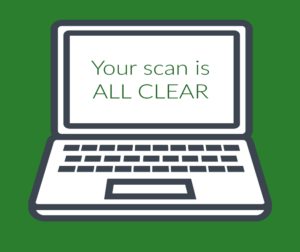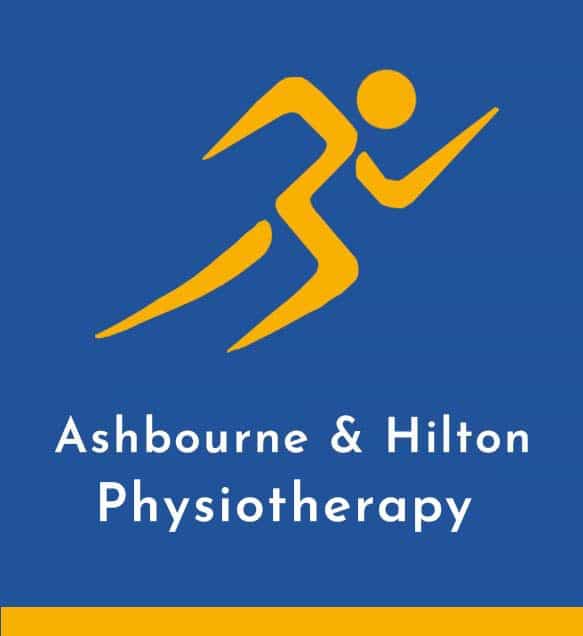Image credit: www.pbmchealth.com
So you’ve had back pain or back pain and sciatica for a while now and people are asking you if you’ve had a scan to show you what’s wrong. That would seem a sensible next step wouldn’t it? Surely, it would help to have as many answers as possible as to why you’re getting the pain? If you’re not offered a scan then surely this is just Doctors/Physios trying to save the NHS money?
Thoughts around when it’s appropriate to have an MRI have changed based on research findings and there are pros and cons to consider in each case.
Here are some of the Pitfalls:
If you are referred for a scan, this can trigger negative thoughts around your back pain:
Why have I been sent for a scan?
This must be serious? Something must be bad?
Image credit: www.atease.com
This is natural.
However, in response to this, your brain heightens your pain response to all these potential threats.
Your pain level escalates subconsciously.
Your scan may indicate some changes (pathology). It could be a disc bulge/protrusion/arthritic changes/facet degeneration.
What does it mean? Is it serious?
Your pain levels heighten, you become more cautious.
Should I move? Will I make it worse?
Your experience of these findings may trigger your recollection of friends/family with similar findings and their bad experiences with pain and decreased function. This potentially escalates your own fears/experience. You stop exercising/moving. You get stiff, you get weaker. Your pain level escalates because you do less. This has a knock on effect with your pain and function. You may now consider movement as a scary and bad thing to do. Subconsciously your brain is convinced that movement is bad and you stop moving. Small movements then amplify your pain and re-inforce this pattern resulting in greater pain.
Sometimes seeing the scan can be disturbing if you are not used to seeing them and no-one has explained what they mean.

Image credit: www.istockfreeimages
Also, the wording used in scan reports can be worrying but often the findings are often a red herring.
The table below shows MRI findings for different age groups for people who DO NOT HAVE and have NEVER HAD LOW BACK PAIN. They were scans that were taken on pain free subjects and reported on in the usual way.
So at age 30, more than 50% of scans will show some disc degeneration even when the patient has no pain! You can see that getting a diagnosis of disc degeneration at age 30 would be somewhat disappointing and might lessen your confidence in your back even though it’s normal for your age.
| Image Features | Age Groups (Years) | ||||||
| 20 | 30 | 40 | 50 | 60 | 70 | 80 | |
| Disc Degeneration | 37% | 52% | 68% | 80% | 88% | 93% | 96% |
| Disc Signal Loss | 17% | 33% | 54% | 73% | 86% | 94% | 97% |
| Disc Height Loss | 24% | 34% | 45% | 56% | 67% | 76% | 84% |
| Disk Bulge | 30% | 40% | 50% | 60% | 69% | 77% | 84% |
| Disc Protrusion | 29% | 31% | 33% | 36% | 38% | 40% | 43% |
| Annualr Fissure | 19% | 20% | 22% | 23% | 25% | 27% | 29% |
| Facet Degeneration | 4% | 9% | 18% | 32% | 50% | 69% | 83% |
| Spondylolisthesis | 3% | 5% | 8% | 14% | 23% | 35% | 50% |
Brinjikji et al
Similarly, disc bulges are one of the most common findings in the over 50’s. Its more common to have one than not, and they are not always painful.
Many times a scan will show things that are there anyway regardless of your pain.
Degenerative changes don’t just occur. A disc bulge might press on a nerve on the opposite side to your pain. In this instance it is a clinical finding but is not clinically relevant/significant. It’s just there anyway.
An MRI is the “GOLD STANDARD TEST” it gives a true representation of change. It is like a blue print image, but what it shows isn’t always relevant. We can have arthritic changes and disc bulges and still be pain free.
It is important to always clinically correlate your findings to make sense of them.
That’s what clinicians (Doctor’s/Physio) try to do.
What if my scan is clear?

This can be very frustrating for patient’s and they can feel misunderstood. Low mood can also escalate your pain response.
This all said sometimes clinicians will request a scan to clarify their diagnosis to help with your care.
A well explained scan can demystify the findings and help with understanding what is happening. It can help to calm fears of something you believe to be bad, and help you to understand what is going on.
It can be a positive outcome to enable you to begin moving again and reduce your stiffness and strengthen your back.
There are strict criteria for clinicians to order scans, also not every clinician can order them. 80% of people will experience low back pain or sciatica at some point in their life. For most people MRI scans are not required.
“There is good evidence to suggest that unwarranted scans are detrimental to patient’s wellbeing and lead to poorer outcomes”.
Sajid Im, Pakunan A, Frost K
Un intended Consequences: Quantifying the benefits, Iatrogenic Harms and Downstream cascade costs of Musculosketel MRI in UK Primary Care.
BMJ Open quality 2021
We at Ashbourne and Hilton Physiotherapy are here to help with assisting you to resolve your symptoms and get you moving again.
A Comprehensive Musculoskeletal Assessment with good experience and clinical reasoning is the core to how we work to enable you to improve your outcome and achieve your goal.
Please call:
Tel: 01335 344952 Ashbourne clinic
Tel: 01283 777070
Hilton clinic
#ashbournephysiotherapy #ashbournephysio #hiltonphysio #hiltonphysiotherapy #hilton #ashbourne #mri #mriscan #scan #backpain #sciatica #lowerbackpain #physiotherapy #physio #rehabilitation #rehab






